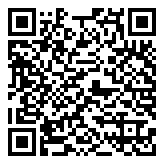Introduction
Auditing is a vital process that evaluates internal control systems to ensure their effectiveness and robustness. It helps organizations achieve their objectives by measuring performance and productivity through the analysis of business transactions and records. Effective auditing minimizes risks, prevents fraud, and provides stakeholders with trusted insights into financial statements and organizational operations.
Success in auditing relies heavily on analytical skills, which are essential for collecting, evaluating, and interpreting data. Despite the availability of abundant data, many organizations struggle to extract actionable insights. Developing analytical thinking skills is crucial for making informed decisions, reducing risks, and maintaining a reliable audit trail.
This course is designed to equip participants with practical techniques to enhance their auditing skills and analytical abilities. Through a hands-on approach, including real-world case studies, participants will learn how to effectively analyze data, conduct audits, and prepare professional reports.
Course Objectives
By the end of this course, participants will be able to:
- Understand the definition of analytical skills and their role in decision-making.
- Develop auditing skills to evaluate organizational systems and mitigate risks.
- Comprehend the benefits of a skills audit and how to improve both personal and professional audit capabilities.
- Apply advanced techniques for data cleansing, trend identification, and deriving actionable insights.
- Master auditing tools and best practices to ensure compliance and organizational performance.
- Prepare professional audit reports, incorporating visual elements such as charts and graphs.
- Enhance critical thinking and problem-solving abilities for better decision-making.
Course Outlines
Day 1: Developing Analytical Skills
- What are analytical skills? Comprehensive definitions and examples.
- Steps in the analytical process.
- Collecting and organizing data for audits.
- Identifying and addressing information gaps.
- Communication, creativity, and critical thinking in analysis.
- Techniques for qualitative analysis.
Day 2: Mastering Quantitative Analysis
- Understanding continuous vs. discrete variables.
- Using charts and graphs to present data effectively.
- Key statistical concepts: Mean, standard deviation, and normal distribution.
- Identifying patterns, seasonality, and understanding causation vs. correlation.
Day 3: Ensuring Data Integrity
- Techniques for data cleansing (e.g., removing duplicates and outliers).
- Differentiating between common and special causes in data.
- Utilizing control charts and Pareto analysis.
- Index creation and its relevance in audits.
Day 4: Building Effective Auditing Skills
- Practical definitions of auditing skills and their significance.
- Key attributes of successful auditors.
- Planning and preparing for audits.
- Developing and maintaining audit documentation.
- Techniques for collecting and analyzing objective evidence.
- Understanding auditor independence and its importance.
Day 5: Reporting and Action Planning
- Identifying opportunities for improvement.
- Developing actionable audit findings.
- Best practices for creating clear and professional audit reports.
- Using graphs and charts to enhance report clarity.
- Presenting findings effectively to stakeholders.
- Follow-up strategies to ensure compliance and implementation.
Why Attend This Course: Wins & Losses!
- Boost analytical skills: Learn how to interpret data and make informed decisions effectively.
- Enhance auditing proficiency: Gain practical knowledge to conduct accurate and efficient audits.
- Develop problem-solving abilities: Strengthen your ability to address and resolve organizational challenges.
- Gain a competitive edge: Master techniques to analyze trends and derive actionable insights.
- Career advancement: Build a strong foundation in auditing skills and analytical thinking to support your professional growth.
Conclusion
This course is tailored to provide participants with the tools and techniques needed to excel in both auditing practices and analytical thinking. Whether you aim to improve your personal auditing skills or enhance organizational performance, this program offers the practical knowledge and hands-on experience necessary to achieve excellence.
Invest in your future by developing the skills to analyze data effectively, conduct audits efficiently, and make decisions that drive success in today’s competitive environment.


